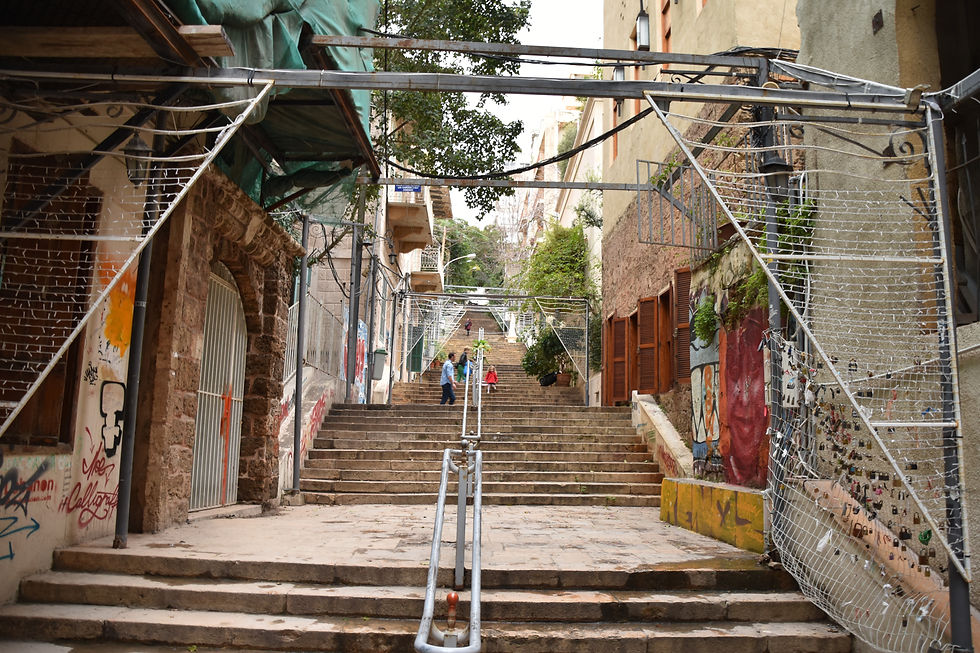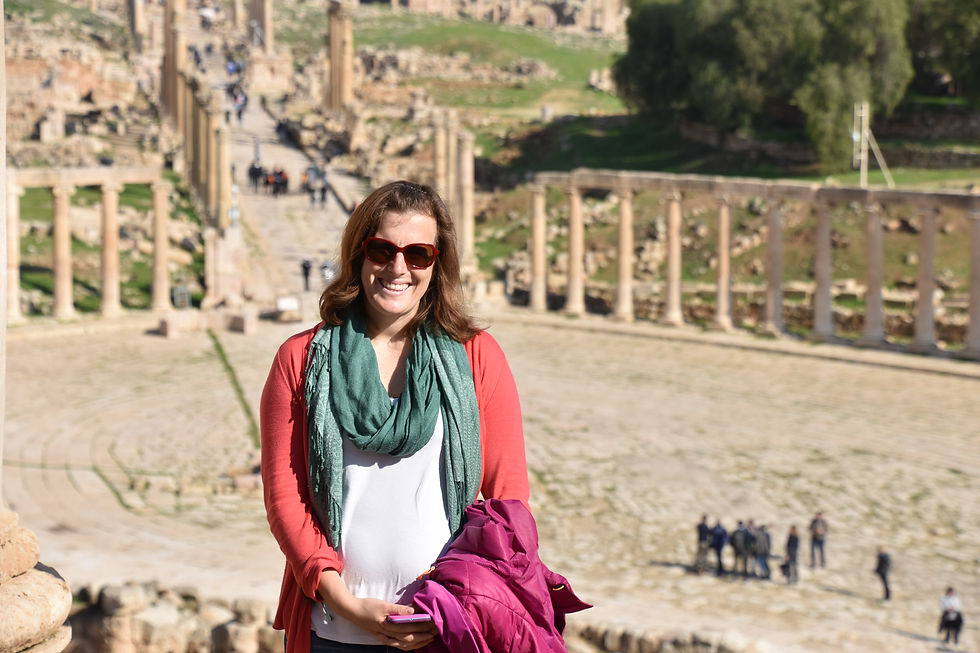Beirut: Still the ME's Cultural Capital
- Globepouncing

- Mar 28, 2019
- 3 min read
Updated: May 22, 2021
Beirut withstood a sound and sustained beating during the fifteen-year civil war from 1975-1990. Once known as a 'Paris of the East' or the 'Paris of the Middle East,' the war transformed the Western image of Beirut as a jet-set playground for the rich into one of fear, misunderstanding, turbulent politics, and security alerts.
Fear not, friends, and go to Beirut. It has ancient history, great night life, religious diversity, and, of course, Lebanese food! In another post, I praised Jordanian hummus and fattoush specifically, but the whole of Lebanese cuisine is the king of Middle Eastern foodie culture. If you want kibbeh, sambousek, manakeesh, fatayer, foul mudammas, grilled meats, garlic paste, fresh juice, or anything with labneh (Arabic yogurt) - which you do - you go Lebanese. Also, Lebanon has Uber. I repeat: Lebanon has Uber. We didn't know that our first time there, but we took advantage on our second visit. It's easy and cheap to do Beirut with Uber. That sounds like an ad, but it's true.
As for the Paris comparison, I see Beirut more as an eastern Rome with its ancient flavor, winding streets, and steep urban hills and terraces.
I suppose Beirut-to-Rome is an easy comparison to make with so many of the key archaeological sites in the eastern Mediterranean being Roman, but I think Paris presents as a somewhat cleaner, quainter, more delicate metropolis, whereas Rome has more grit and surrounds you with more rustic, weathered, ancient grandeur than polished, neoclassical and gothic splendor, and Beirut leans Roman in this regard. The grime and grit are baked into the neighborhoods and are part of the beauty. I've heard people call Rome dirty, and I've heard people call Beirut dirty. It's not dirt; it's character. It's legacy.
We stayed in Beirut's hip Hamra neighborhood at Hamra Urban Gardens, which we were able to book through Airbnb. HUG is a good value with no frills; the rooms are spacious and the traditional Lebanese breakfast is more than adequate. There are plenty of places to go out in the HUG vicinity - lots of bars, coffee shops, restaurants, etc. We especially enjoyed Ales & Tales, Ferdinand, and Dar Bistro & Books. Ales & Tales has good food, great bottle beer imports (that you get to retrieve yourself from their retro beer fridge!), and fantastic barkeeps - they'll make you think you're in a Lebanese remake of Cocktail and - at the same time - make you feel right at home with conversation and by not letting you leave without everyone sharing a shot. You can find local brews at Ferdinand, including bottles and draughts from 961 Brewing (Gravity Brewing Sal). We also ate at at least half a dozen Lebanese restaurants (surprise!), and every one was excellent. Much as you can stop into any restaurant in Rome and have the best Italian meal you've ever had, you can stop into any place in Beirut and eat something life-affirming. Hamra is also not a bad spot from which to trek around the city. You can walk down to the corniche easily from there and then walk all along it past the lighthouse and the American University of Beirut (AUB) to the famous Raouche Rocks and all the way back the other way to the souks and then along the Heritage Trail, which is marked by medallions embedded in the pavement - each one adorned with a dolphin and Poseidon's trident! And remember - if you want to venture further, just log into Uber.
Along the Beirut Heritage Trail one finds excellent Roman ruins and several beautiful mosques. The Roman baths complex is the most extensive ancient baths site we've seen outside of Rome itself.
Along the trail is another key reason we love Beirut: the commingling of Muslim and Christian sites. It's a beautiful sight to see. One of the best examples of this is the site of the adjacent Mohammad al-Amin mosque (Hariri mosque) and Maronite Cathedral of Saint Georges. Saint Georges, moreover, is adjacent to the Roman Cardo Maximus ruins. This peculiar concentration of culture is a taste of the eclecticism that defines Beirut.
You will be harassed by the honking of cab drivers in Beirut. This is unavoidable, and it becomes funny in a pathetic way - or pathetic in a funny way; I'm not sure. Don't use the cabs. Get yourself a data plan and use Uber. Aside from the cabs, though, nobody will give you any trouble. Just food.
Have a read of this recent National Geographic article for more on the preservation of Beirut's cultural sites. Also see the Globepouncing article on Lebanon. Thank you and enjoy!
If you found this article helpful, sign up to become a member and find us on your favorite social media platform. Paws for travel!

























Comments